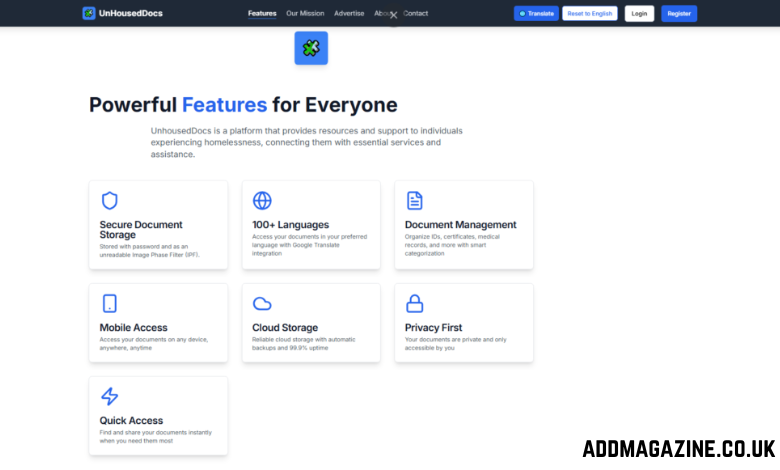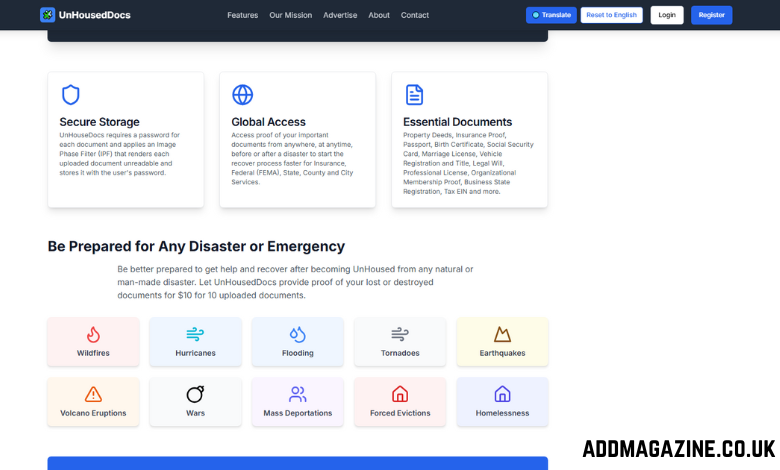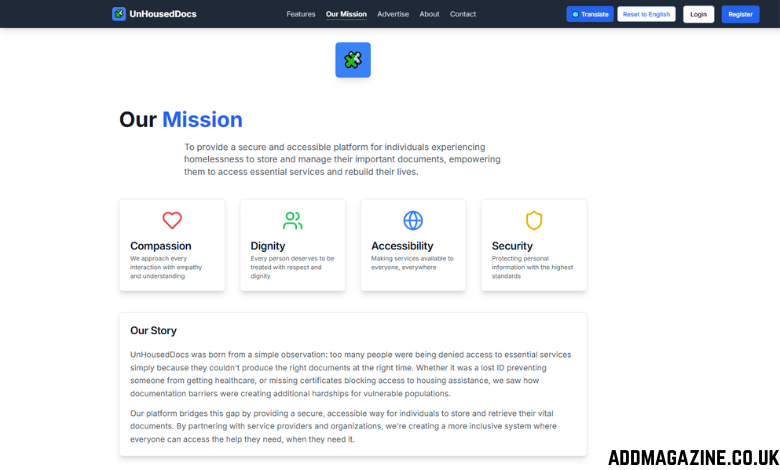In today’s uncertain world, disasters are more common and devastating. One thing is certain: whether it’s a raging wildfire in California, flash floods in Pakistan, an earthquake in Turkey, or ongoing conflict in Gaza and Ukraine, lives can change in an instant. Communities lose their infrastructure, businesses close, and families lose their homes.
Among the chaos, one of the most overlooked but devastating losses is the destruction of physical documents. Birth certificates, medical records, land ownership documents, contracts, ID cards, and academic records frequently disappear overnight. Without these, rebuilding after a disaster is significantly more difficult.
This is why maintaining a secure digital backup of documents has become critical. It is no longer considered a luxury but rather a necessity for both individuals and organizations. People can recover more quickly, prove their identity, gain access to essential services, and restart their lives if critical information is digitalized and securely stored.
This article looks into why digital backup is so important, how it protects communities from natural and man-made disasters, and how solutions like UnHousedDocs are shaping a safer, more resilient future.
1. The increasing frequency of disasters.
Over the last two decades, the world has seen a significant increase in natural and man-made disasters.
- Natural disasters such as hurricanes, wildfires, earthquakes, and floods have displaced millions of people. The 2023 wildfires in Hawaii destroyed entire neighborhoods, and the 2022 floods in Pakistan displaced over 33 million people.
- Man-made crises, such as wars in Gaza and Ukraine, have uprooted communities and forced people to flee with little more than the clothes on their backs.
In both cases, vital documents are among the first casualties. Without documents, survivors have a difficult time accessing healthcare, education, and aid programs and even proving ownership of their homes and land.
Digital archiving can help in this situation. Documents kept in secure online storage cannot be destroyed by fire, water, or bombing. Survivors can log in and get what they need from anywhere in the world.
2. Why Physical Documents Are Vulnerable.
Most individuals and small businesses continue to rely heavily on paper-based records. However, physical documents face multiple risks:
- Fire and heat can permanently damage paper files.
- Water Damage: Floods, hurricanes, and even burst pipes can turn documents into unreadable pulp.
Water Damage: Flooding, hurricanes, and even burst pipes can render documents unreadable. ment: During evacuations, people often leave behind or lose critical files. - Time and Decay: Even without disasters, paper fades, tears, and deteriorates over time.
Once lost, many of these documents are impossible to replace quickly. In some war-torn regions, government archives themselves have been destroyed, leaving people with no way to prove identity or ownership.
Digital backups solve this by ensuring information survives even if physical copies do not.
3. Human Impact of Document Loss
The loss of personal and legal documents is more than just an inconvenience; it can alter the course of a survivor’s life.
- Identity Proof: Without identification, refugees are unable to cross borders, receive humanitarian aid, or enroll their children in school.
- Healthcare Access: Medical records are necessary for ongoing treatment. Losing them causes delays or prevents care.
- Financial Loss: Without contracts, insurance papers, or land deeds, people may lose property rights or face disputes.
- Generational Setbacks: Academic transcripts or certificates lost in disasters can derail education and career paths.
For businesses, the stakes are just as high: contracts, tax files, and intellectual property may vanish overnight, forcing permanent closure.
4. How Digital Backup Resolves These Issues
Digital storage offers a modern solution to long-standing problems. Unlike fragile paper documents, digital backups:
- Survive Disasters: They cannot be burned, soaked, or ripped.
- Are Accessible Anywhere: With just an internet connection, displaced people can access their records.
- Offer Multiple Layers of Security: Encryption, cloud storage, and redundancy protect data from hackers and loss.
- Support Fast Recovery: People can quickly prove identity, claim aid, or restart businesses with stored files.
The key is not just digitization but secure and reliable backup systems designed to protect sensitive information.

5. Case Study: The War in Gaza and Ukraine
Wars highlight the harsh reality of document loss. Airstrikes in Gaza destroyed thousands of homes, including family archives. Millions of refugees fled Ukraine overnight, abandoning their property deeds, diplomas, and medical records.
For these communities, digital storage is more than just a convenience; it is a necessity. Imagine a refugee arriving in a new country with nothing. If they can log in and download a copy of their passport, academic certificates, or property proof, they will be able to rebuild. Without it, they risk losing their identity, heritage, and legal standing.
6. Case Study: Natural Disasters—From Floods to Wildfires
When Pakistan faced catastrophic floods in 2022, thousands of families lost everything, including official documents. In the United States, wildfires in California and Hawaii wiped out entire neighborhoods within hours.
In both scenarios, survivors struggled not only with rebuilding homes but also with proving who they were, accessing aid, and restarting work or studies.
Digital backups ensure that documents outlive the disaster. Whether it is a student reapplying for scholarships after losing transcripts or a family reclaiming property after wildfires, stored digital records can speed up recovery.
7. Why Secure Systems, Like UnHousedDocs, Matter
Not all digital backups are created equal. Simply storing files on a personal hard drive or email account is not enough. Hard drives can fail, and email systems can be hacked.
This makes such platforms critical for individuals and organizations seeking long-term resilience.
Platforms like UnHousedDocs provide specialized solutions:
- Encrypted Storage: Protects against cyberattacks.
- Disaster-Proof Access: Data is stored redundantly across servers, making it resilient.
- User-Friendly Design: Even non-technical users can store and retrieve documents easily.
- Designed for Crisis Recovery: Tailored to meet the needs of displaced communities and disaster survivors.
This makes such platforms essential for both individuals and organizations seeking long-term resilience.

8. The Future of Digital Archiving.
As climate change worsens and geopolitical tensions escalate, digital archiving will become as common as insurance. People will increasingly protect their documents from loss in the same way that they insure their homes against fire and flood.
Future trends might include:
- Blockchain-based document verification ensures tamper-proof records.
- AI-powered search and retrieval to instantly find specific files.
- Integration with governments and NGOs, ensuring that displaced people have quick access to aid.
The goal is not just preservation but empowerment—helping communities bounce back faster and stronger.
9. The Homelessness Crisis in the USA and the Challenge of Document Loss
The U.S. homelessness crisis reached a record high in 2024, with over 770,000 individuals counted on a single night in January, according to the Annual Homelessness Assessment Report (AHAR). Family homelessness rose by 39%, while the number of children under 18 experiencing homelessness jumped by 33%, reaching nearly 150,000. These increases follow a 12% rise the previous year, reflecting worsening conditions across the country.
Homelessness in the U.S. is driven by several factors:
- Unaffordable housing: Only 37 affordable homes exist for every 100 extremely low-income renters.
- Economic instability: Stagnant wages and high housing costs push families into crisis.
- Systemic barriers: Limited healthcare, systemic racism, domestic violence, and institutional discharges all contribute to instability.
One of the most overlooked challenges is the loss, theft, or damage of vital documents such as IDs, birth certificates, Social Security cards, and medical records. Without them, people face enormous challenges:
- Applying for a job or housing.
- Access to shelters, clinics, and food programs.
- Receiving benefits such as food stamps.
- Replacing lost documents—which often requires proof of residence, creating a vicious cycle.
Digital backups provide a practical lifeline. UnHousedDocs, a cloud-based platform, can:
- Securely store digital copies of IDs and certificates.
- Allow social workers or authorized staff to help individuals retrieve records.
- Simplify the replacement process with government agencies.
- Ensure that documents survive even in cases of theft or loss.
However, digital solutions also raise critical challenges:
- Many homeless people lack access to reliable internet or devices (the digital divide).
- Privacy and data security must be prioritized to protect vulnerable populations.
- Legal safeguards and informed consent are necessary to prevent misuse of data.
For these reasons, digital archiving should be part of a larger solution that includes affordable housing, economic support, and systemic reforms — all while ensuring that homeless people do not lose opportunities due to missing paperwork.
Conclusion
Disasters—whether natural like floods and wildfires or man-made like wars—are unavoidable. What matters is how prepared we are to recover.
Losing physical documents can delay or even prevent recovery. But with secure digital backups, individuals and businesses can safeguard their identities, rights, and futures.
Platforms like UnHousedDocs are leading the way by offering safe, accessible, and disaster-proof digital storage for communities worldwide.
In times of uncertainty, one thing is certain: digital archiving is no longer optional. It is the foundation of resilience in the modern age.




